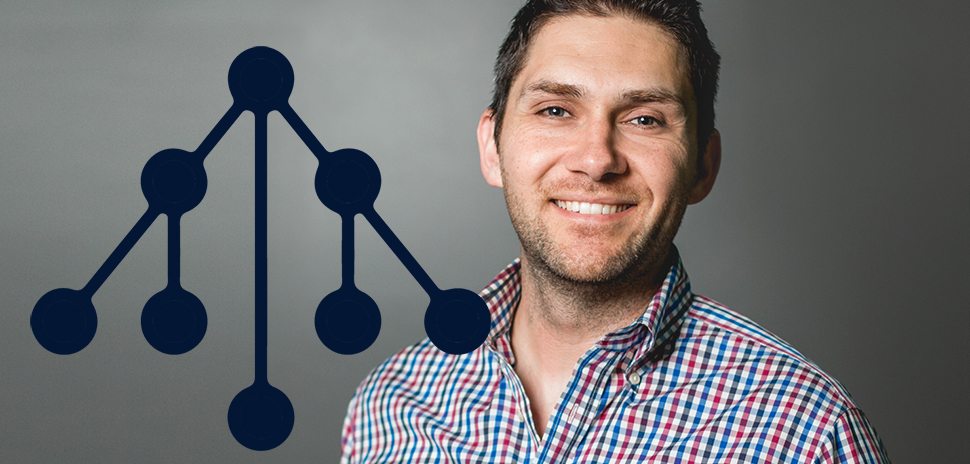Nirvana. Maroon 5. Weezer. The Ramones. Some of the world’s most influential bands started out in their garage.
Garages, however, aren’t just a petri dish for experimenting musicians. They’re a breeding ground for earth-shattering tech and mind blowing business concepts, too. Think Google. Microsoft. Apple.
Our next startup may just be well on its way to following in those footsteps. Made up of developers, programmers, and other technical warriors, Modular may not make it to your workout playlist, but it’s a rock star in its own right. You see, it’s pushing bytecode to the next level — and it intends to disrupt the way you and I access the blockchain universe.
I spoke with Christopher Brown, founder of Modular, to find out how his team is taming the wild frontier of distributed networks and harnessing the power of Ethereum.
Where did you get the idea for Modular?
I’m a full stack web developer and began working my way into the finance industry. But my heart was with breaking apart and building code; around the time Ethereum came out I was back into development full time. I was intrigued how Ethereum allowed developers to create new marketplaces and contracts with little interference from third parties or the threat of censorship. But the apps available for things like bitcoin are not user friendly, not to mention vulnerable to cyber attack.
We have a team of specialists around the world who are working with us to build the right tech to make bitcoin trading an everyman’s game.
In all honestly, I probably spent more time on it than I should have. It was just a garage hobby. But the more I put my ideas out there, the more attention I attracted. Before I knew it, I had partnered up with Joshua Hannan who came with experience at IBM and Apple. Now, we have a team of specialists around the world who are working with us to build the right tech to make bitcoin trading an everyman’s game.
What’s been your biggest struggle with Modular and how did you overcome it?
Our biggest struggle has been finding the best use case to approach. We want to use Ethereum’s platform to build applications that will pass the “grandparent test” for usability. There are so many possible options to explore at this point. So it’s really important we choose the right path so there’s no back tracking down the road. I believe time’s on our side for developing a solution that will provide the best user experience for buying and selling. We’d rather approach the solution methodically and get it right the first time.
If you could go back in time, before you started Modular, what one piece of advice would you give yourself?
Get ready for the workload. Going from a garage hobby to a professional business with stakeholders takes you to a whole new level of pressure. Josh and I started putting Modular together last year. Since then, we’ve worked on a cryptocurrency protocol with Truebit, deployed tokens and ICO contracts for Trade.io, and are building Blossom (a 1st gen Ethereum platform), among other high level projects. There’s a lot of testing, tweaking, and reworking before anything gets published. The process can get overwhelming if you don’t take it one step at a time
What was your first big “oops” moment and how did you resolve it?
We haven’t had one yet. And that’s a little scary if you think about it. We’ve been very direct with our approach and have been fortunate to not have any setbacks. It’s probably inevitable that something’s going to hit the fan. And truth to be told, I’d rather have that “oops moment” happen sooner than later, when there’s not as much at stake.
What do you believe is Modular Network’s biggest advantage?
We’re playing right in the middle where nobody else is looking. It’s really kind of an odd community. At the top you have all of the big thinkers who have really high level views of end user apps.
The best technology is invisible.
Then you have the hard core geniuses who are working out mathematical proofs and algorithms at the base. Our team’s made up of programmers and developers, along with UX guys, so we’re not tethered to just one vantage point.
What’s the Golden Rule you live by?
The best technology is invisible.
If you’ve been to a Digital Dallas Startup Comedy Roast, you know there’s nothing modular (it’s a stretch, but it kinda works) about our approach to laughing out loud! Every skit you experience will be something unique to celebrate and of course post about.
If you already haven’t, now’s the time to purchase your ticket.
A version of this content originally appeared on the website of Digital Dallas, a Dallas Innovates partner organization.
READ NEXT
Q+A: PICKUP CEO Brenda Stoner Talks About Turning a Truck into a Revenue Hauler
Q+A: On-time Package Delivery? Dallas Startup CEO Says it’s Not a Far-fetched Idea
Q+A: Seeing is Glass-Media’s Defibrillator to Resuscitate Brick and Mortar Retailers
![]()
Get on the list.
Dallas Innovates, every day.
Sign up here to get what’s new and next in Dallas-Fort Worth.
One click, and you’re done.
View previous emails.

































































